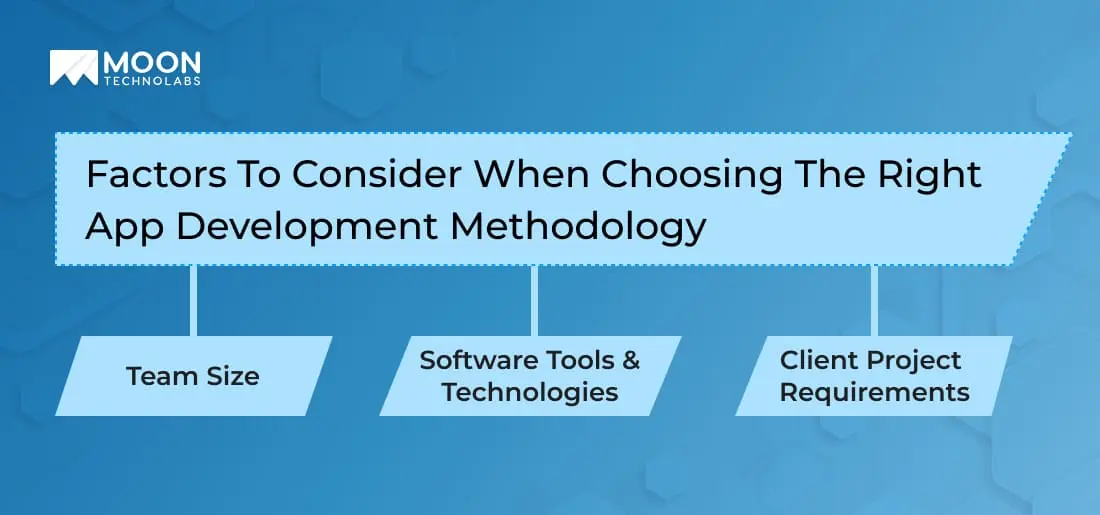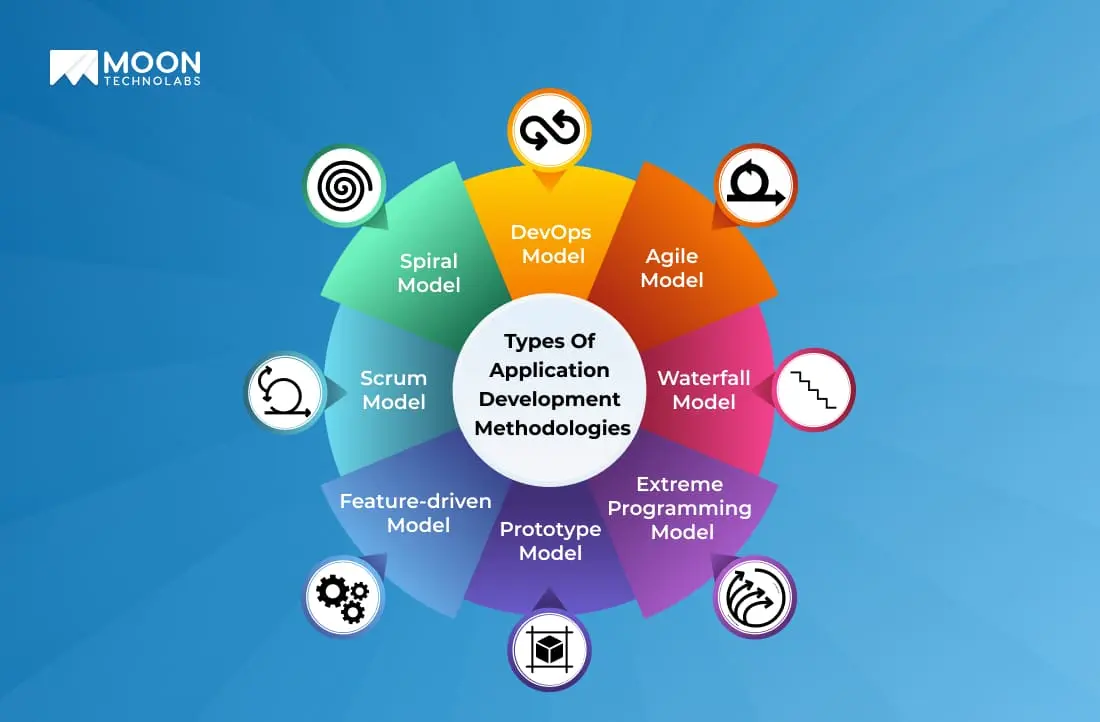Table of Content
Table of Content
As a software development company, have you ever felt that you could enhance the efficiency of your app development process? The three small changes can make a huge difference in how your software development processes are carried out:
In 2023, defining & adopting a suitable software development methodology is integral to the success of your IT company. It facilitates smoother communication and sync between your development & operations teams. Eventually, it drives positive product development results.
However, the importance of choosing & adhering to a software development methodology highly depends on your organization’s team size, business goals, & client requirements.
In this article, we’ll illustrate various types of software development methodologies pursued in the market today. And after going through this script, you’ll get all the intel you need to understand which methodology will suit your software team the best.
Without further ado, let’s get started!
Isn’t that the penultimate question that drove you to this blog? We figure yes, and it’s only fair enough to answer it right.
Running an IT development company, there might have been instances wherein your development team faced many challenges, usually because the customer representative team didn’t convey the technical requirements effectively.
In the real-world operation of software development services, your organization would face dozens of problems.
However, a structured workflow process & designing the philosophy/principles by which your team operates will enable you to attain positive business outcomes. It allows you to define the ruling principles & guidelines by which your software development team operates.
Put it concisely; a software development methodology is a deeply-embedded philosophy. It sets the course for how your IT organization operates and facilitates app development, including workflow structure & other external operations.
Till now, you’ll probably have some idea why there’s a need to choose a methodology. Here’s an overview of the most important factors for choosing the right app development methodology:
You must choose the appropriate software development methodology based on certain parameters. By adopting the perfect methodology for facilitating your app development processes, you can benefit greatly in terms of saving time, money, & effort. These are the factors you need to consider.

Your organization’s team size is a crucial factor in determining which app development methodology will suit the most. For small IT companies, the classic waterfall model is a great choice. For medium-scale software companies, agile software development methodologies, such as Scrum and Prototype, are good. For large-scale IT companies, methodologies such as DevOps & XP are great choices.
The availability of modern software tools & technologies will also play a role in which software development methodology will suit your organization the best. When you have access to advanced tools, you can use them for implementing top-notch software tasks & achieve results in less time.
Depending on the client’s project requirements, you’ll have to choose an app development methodology that helps to facilitate streamlined app development & submit the project within time. For projects that have active iteration requirements & code revisions, adopting methodologies such as Spiral & XP will be of the utmost importance.
Facilitate User-Centric Software Development By Choosing The Right Methodology.
Customers are at the heart of driving every important decision. Hence, their satisfaction is of utmost importance. Even more important is to keep revising your software development methodology with evolving needs.
The right app development methodology & strategy will enable you to build customer-centric products & make revisions from time to time. Here’s why:
There’s so much more you benefit from adopting a methodology suitable to your software development workflow. You can save time, money, and effort, & bet on the smooth progress of your app development.
Whenever there are design revisions, there’ll be a formulated procedure for incorporating them. Hence you can appease your customer’s requests & at the same time, maintain the feasibility aspect.
Over the years, various types of software development life cycle methodologies & philosophies have been developed. According to the workflow & organizational structure of IT service providers, visionaries & developers have revised how individual software teams can operate to complete projects on time & within budget. Let’s look at the top 8 types of software development methodologies adopted by several IT organizations today.

DevOps is an organizational philosophy by which the internal software teams operate & collaborate seamlessly to complete projects on time & attain business goals. Both the development team & operation team remain in sync with each other throughout the app development phase via properly established communication channels. Software development pipeline efficiency is enhanced by adopting DevOps principles which promote the use of automation tools & cloud infrastructure management tools.
When there’s a need to develop complex applications that require frequent revisions/code modifications, developers have to be adept at CI/CD. DevOps establishes the baseline to deliver projects on time, addressing client requirements throughout the app development phase. Expanding out of the discussed development scope is possible with DevOps methodology, allowing more flexibility in app development.
As the name suggests, this type of software development methodology involves incorporating an agile approach while conducting the app development process. The software teams are highly supportive & flexible to change, benefiting customers by building custom applications. More focus is given to collaborating with the customer throughout the app development process & tuning to their iterative development requirements. Agile software development methodologies are used to facilitate speedy app development & hence documentation is only done for the utmost necessary product development details.
Agile software development methodologies best suit IT organizations with fast-changing project requirements. When there’s a volatile demand for your IT services, you need to be quick at rendering them & agile software development is the best approach. In hindsight, your development team & other internal software teams must be highly independent to execute such rapid code integration & delivery.
No complications; this is as simple as it gets. We’re talking about old-school software development here. The waterfall approach to software development involves a classic series of steps that must be purposefully followed while executing the development. After the project manager gathers client requirements, they pass them on to the development team. Once the software is developed, it is passed to the QA & testing team and launched.
The waterfall software development methodology best suits projects with a clearly-defined scope. When there are little-to-no unknown parameters & when customers are 100% sure of their product requirements, you can go forward with this development approach. Time for development takes a minimum curve & you can complete projects on time.
01
02
03
04
Submitting the form below will ensure a prompt response from us.